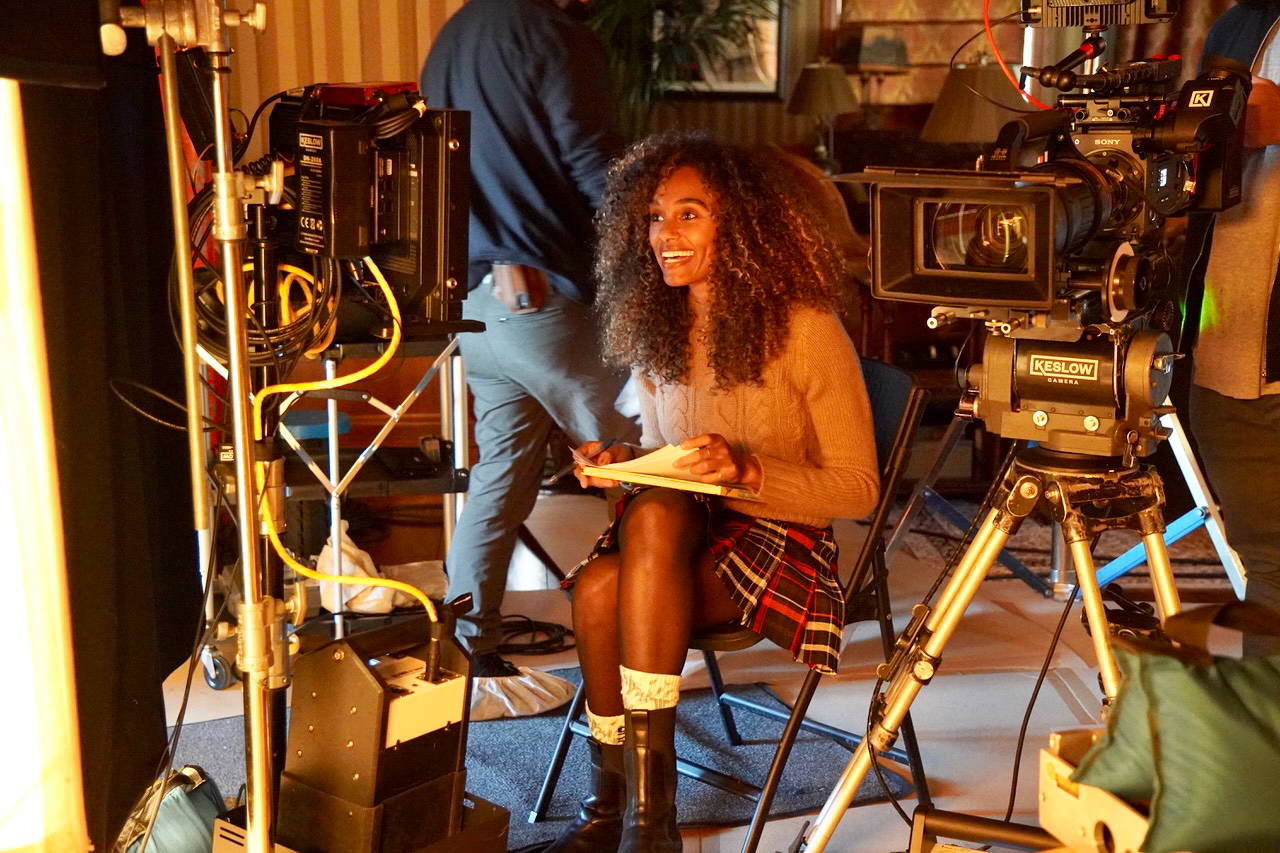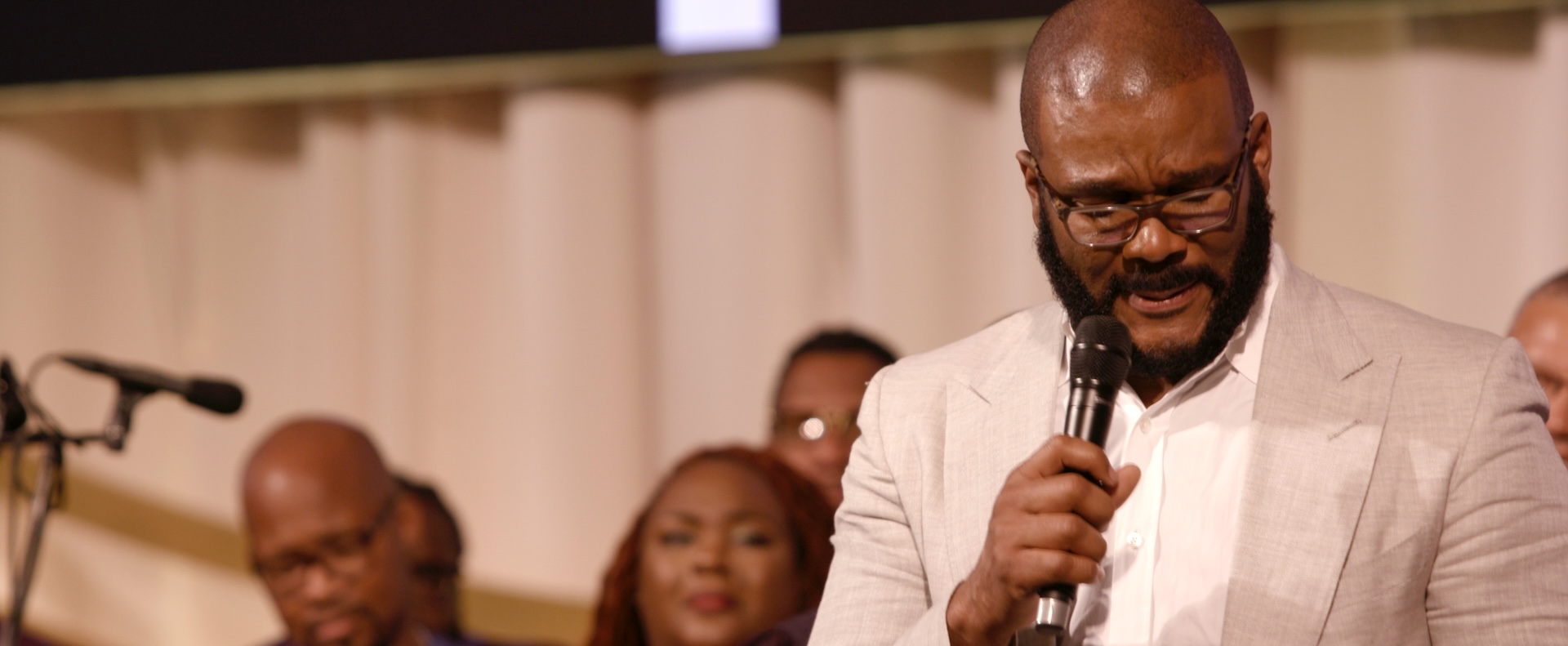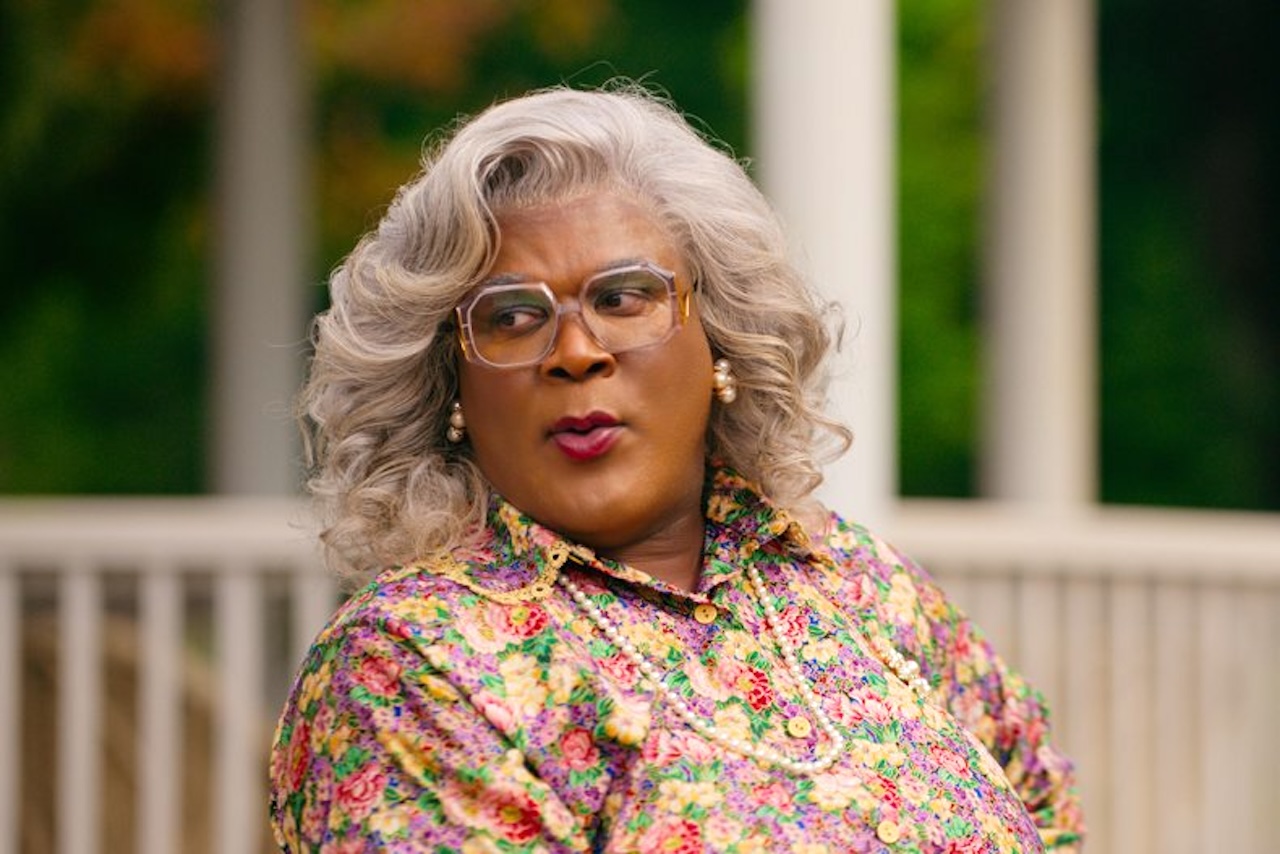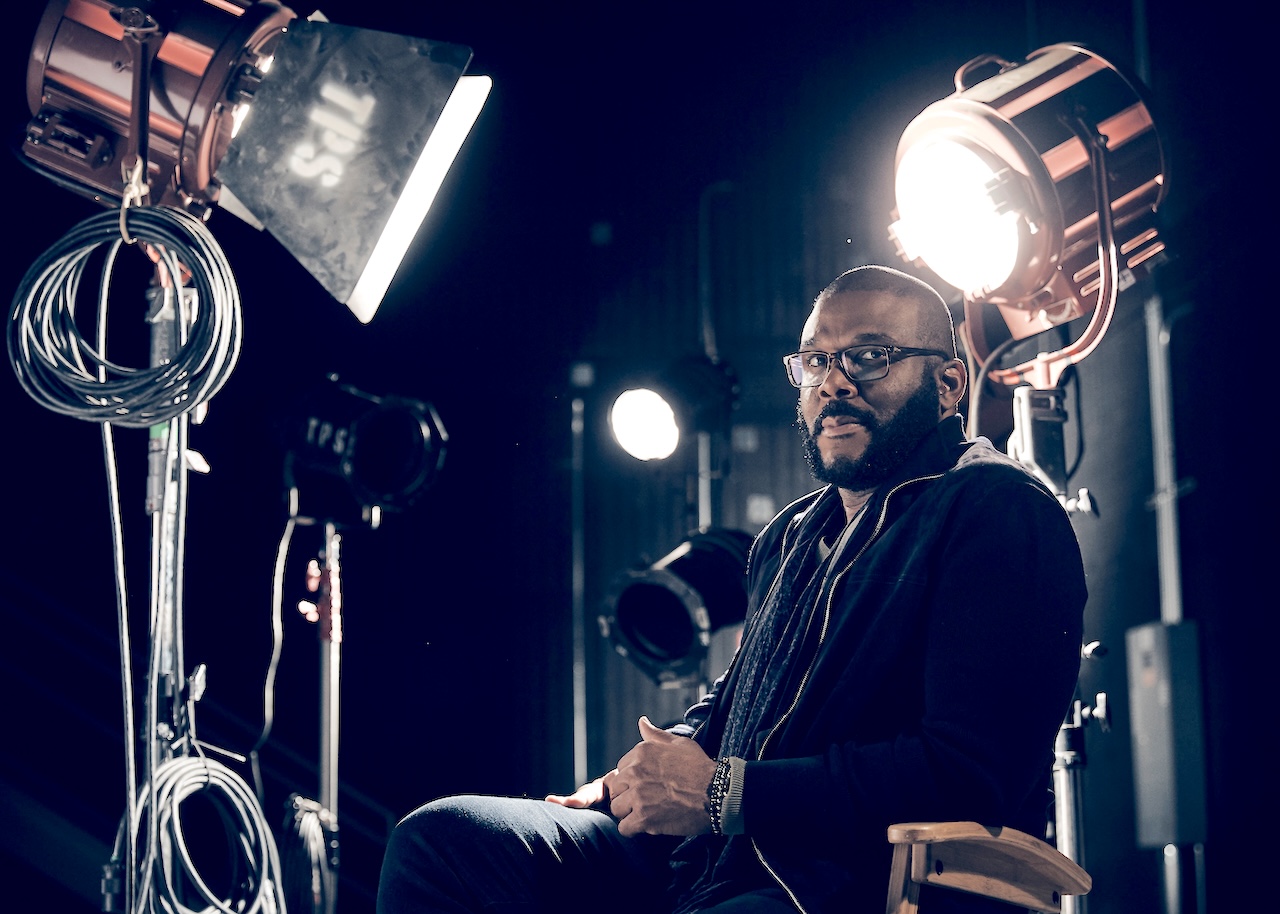The name Tyler Perry is synonymous with an entertainer with humble beginnings who redefined the rules of film and television production by doing things his way, not the established way. In doing so, he became a media mogul. Maxine Perry was his loving mother and Gelila Bekele his former long-term partner. Bekele is therefore well-poised to tell the intimate story of Tyler (born Emmitt) Perry to make a documentary about him.
“Initially, it wasn’t meant to be a documentary. That was not my intention when I first grabbed the camera. I’ve had the privilege of having the front row seats and witnessing something great happening. If you’re a filmmaker, you want to capture and not miss the moment. As time went on, I realized how powerful and how extraordinary Tyler is. I wanted to capture him, whether it was to archive and see what happens later. Then it ended up unraveling into a film,” explains Bekele. “Every filmmaker likes to think that films are timeless.”

Gilela Bekele. Photo courtesy of Amazon MGM Studios
Gilela was initially planning on releasing Maxine’s Baby when Tyler opened his Atlanta studios in 2019. Regrettably, the pandemic struck and the timeline shifted. The documentary film was ten years in the making.
Who Is Tyler Perry?
Bekele argues that Perry is more known as a brand than as a person.
“My focus was trying to make a sense of what I just captured. It was really about the person, not so much of the accolade, but the beginning where it all started.”
She began by conducting research and interviewing Perry’s colleagues, family and friends in New Orleans where Tyler Perry was born. As a foreign-born American, Bekele tried to understand the history of America and its people. “I looked at the layers of what works against you, especially as a black man, and also coming from a broken home.”
Perry has an undeniable connection to his base, which is largely African-American. “It’s a very emotional connection when I watch him being on tour, doing all these plays and watching how people react to him and to his stories. To witness that was such a powerful experience.” That was what she wanted to capture on film.
Maxine’s Baby is truly an unfiltered documentary about Tyler Perry. Gelila Bekele doesn’t believe she could write anything to make his story more real or truthful.
Bekele didn’t want to portray Tyler as a pitiable victim who overcame adversity and rose to astounding success. She sees his story more as a fairy tale.
“I think real life isn’t so much about ‘here is your hero’ or ‘he’s perfect’ or’ here is a sad story’. Even if you have a bad day, the whole day isn’t so bad. Something funny will happen, something outrageous will happen. That’s just how life is. I don’t really believe in force feeding your audience.”
I’m comfortable in holding a place for polarity
Maxine’s Baby is about tapping into your potential no matter what you have endured. There are no short cuts to success and you certainly won’t achieve it if you’re not prepared to do the work.
“It was important to watch that process of how hard he works; the writing, the touring, even his connection with those who work around him. It’s not so much that they work for him, but they work with him.”
“To actually have this quiet moment of filming for twelve hours each day, you get to see this unspoken energy around him, of these young people who take ownership of what they do was quite beautiful.”
Media Mogul
Tyler Perry didn’t buy a rule book for corporate success. He wrote his own, starting with the purchase of former military based Fort McPherson in Atlanta to convert into a massive studio lot which he also had a strong hand in designing.
“I don’t know any other studio that’s designed by a creative. Every niche and crane of that studio, he’s had hands in carving, making it a place for creatives. I don’t know how to explain it, but a director knows what a director needs.”
“I think the former mayor of Atlanta says it beautifully. ‘This was a place that was forgotten and he did something to uplift the neighborhood and create job opportunities. You know what that means for the community. He’s always been such an advocate for the city of Atlanta which gave him so much.” Tyler Perry Studios value community and people more than real estate.

Tyler Perry. Photo courtesy of Amazon MGM Studios
Perry came of age during the Reagan era which drastically cut funding to after school art programs. This was especially hard-felt in New Orleans. So, the church, where his mother took him, became the center for performance art and creativity.
After migrating to Atlanta for a spring break, he came across Black entertainment professionals that he couldn’t meet back home. That was the impetus for him to relocate. He knew he could lay down roots and thrive here. He believed that opportunities would present themselves so long as he put in the work.
Comedy From Pain
The foundation of Tyler Perry’s comedy stems from pain and misery, systemic racism and inequality. He redirected that discomfort to comedy to process it.
“When I look at comedy, there is a sense of sadness and tragedy in the story. Tyler used to mimic the church ladies to make his mother laugh. It was a little escape for her and a little imagination for him. That formula and existence followed him. It was also a way for him to survive what he was going through.”
“He realized that he can talk about serious stuff like abuse and all kinds of things that happens to people and to the community he belongs to. And in mixing that with comedy, people are able to breathe, watch and perform. One thing that really resonates for me is when I see all kinds of emotions that people experience in watching his films or his theater work because they see themselves in this.”
“There’s also this beautiful moment of having to talk about these hard experiences as human beings. When you mix it with comedy, I think it’s more palatable for all of us. It’s like the medicine with sugar. It helps it go down.”
The beauty of comedy is that it allows for discussions about culturally-sensitive or taboo subjects in a frank manner.
Despite Tyler Perry’s audience being mainly African-American, “it’s a human story and I think that pain is universal. It crosses languages and traditions.” This is reflected in Perry’s increased following among people from different backgrounds.
“The thing about documentaries is you don’t know the ending. My interest was about who the man is. His background speaks in his work. Work is what saved him. His writing, his creativity is what saved him.”
“It wasn’t so much about Tyler the mogul. It was more about how art saves us.”
Madea Simmons
Perry’s portrayal of his characters are based on his experiences. Bekele reveals that she didn’t really understand Madea Simmons until she visited New Orleans. “When I look at the African American and the Baptist churches, there is a celebration that happens. I watch them with their male/female child and the elderly. There are characters that I see in his films; they way they’re dressed the way they speak, and the way they interact with each other.”

Mabel (Madea) Simmons in A Madea Homecoming. Photo courtesy of Netflix
“Madea is a cultural reference that I had to learn myself in making this film and diving a little bit deeper in understanding how this connects with his audience and his work. It’s amplifying his upbringing, his environment.”
Madea represents a certain generation of Black women. “She’s a direct line from Tyler’s aunt and his mother, but I also see her as a metaphor saying certain truths that are hard for people to hear. She’s also like the statue of liberty, holding a torch. She’s a church lady, but you never see her go to church. She criticizes the church. She also criticizes the family, but she wants the family to be together. She’s a grandmother with a pistol in her bag and you’ll catch her smoking sometimes.”
“She’s all of these mixed, mushy characters in one. I also see her in so many different cultures that exist. She also represents the strength of what people endure. She’s gone through a lot and she somehow has this iron armor. She’s also a shielder, a protector. I can see her as a superhero that comes in and saves the day. She’s not scared of anyone.”
“Madea’s really known for her revisionist interpretations of the Bible, because if she actually read it, it’ll change everything. I see her as some kind of female lyrical.”
“Tyler’s a constant dreamer, that’s for sure. There’s a part of me where I wish I continued filming for the next ten years because he continues to push the envelope and keeps going. He’ll do more things and more for people. In ten years, he’ll have bigger dreams.”
[More: How Armani Ortiz Worked With Tyler Perry To Make “Perimeter”]
